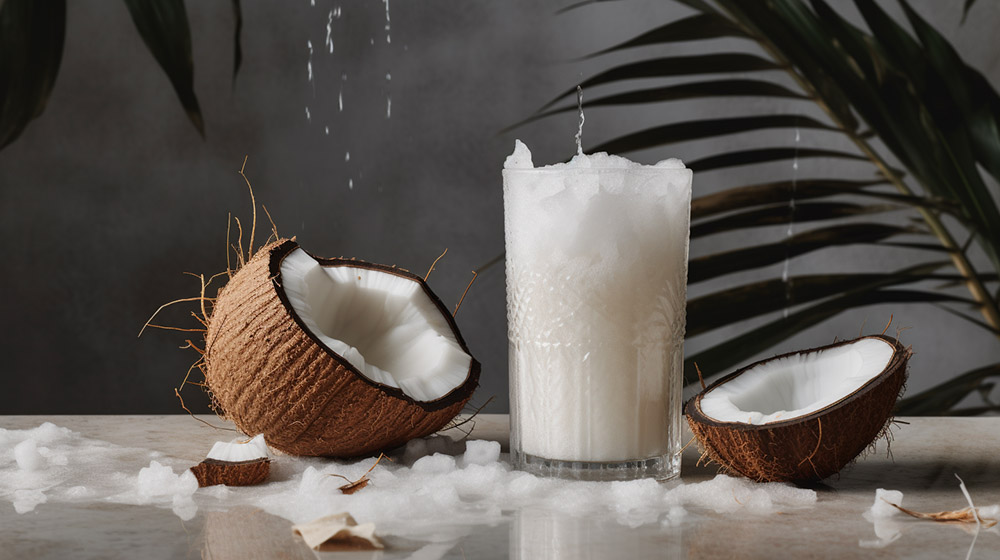Coconut milk, with its sweet, creamy texture, is a staple in many kitchens around the world. However, if you’ve got leftover coconut milk, you might be wondering – can you freeze it? Let’s dive into the icy depths and discover the freezing and thawing process of coconut milk.
🧊 Freezing
Can You Freeze Coconut Milk?
Yes, you can certainly freeze coconut milk. Both homemade and canned coconut milk can be safely frozen without compromising its safety or nutritional value. However, the texture may undergo certain changes, which we will discuss next.
Does Freezing Change Texture?
The catch here is that freezing coconut milk might lead to a change in its texture. When thawed, the coconut milk may separate into its water and fat components, leading to a grainy, uneven texture. But worry not, this doesn’t mean you can’t use it. Shaking or blending can usually bring it back to a smoother consistency, and it’s still perfectly good for cooking and baking.
How to Freeze Coconut Milk: Step by Step Guide
- Choose a freezer-safe container to store your coconut milk. This can be a plastic container, glass jar, or even a zip-lock bag.
- Leave a little room at the top as the milk will expand when frozen.
- Seal the container tightly, label it with the date, and place it in the freezer.
Can You Freeze Unopened Canned Coconut Milk?
If you have unopened canned coconut milk, it’s best to leave it in the pantry as freezing may compromise the can’s integrity, leading to leaks and potential health hazards. Once opened, however, you can certainly freeze the leftover coconut milk.
How Long Can You Freeze Coconut Milk?
Coconut milk can be frozen for up to three months without any major quality loss. Beyond that, you might notice the texture and flavor changes becoming more pronounced.

🫠 Defrosting
Refrigerator Thawing
When it’s time to use your frozen coconut milk, the best way to thaw it is to transfer it to the refrigerator a day before you intend to use it. This method ensures the coconut milk thaws evenly, helping maintain its quality.
Quick Thawing in Water
In a pinch, you can thaw your coconut milk quickly by immersing the sealed container in a bowl of cool water. Make sure to use it immediately after thawing to maintain its freshness.
More Than a Nut: Other Queries Cracked Open
5 Tips for Freezing Coconut Milk
- Consider portioning your coconut milk into an ice cube tray. Each cube is perfect for adding a little richness to a curry or a smoothie.
- Always use freezer-safe containers to prevent leaks or damage.
- Shake or stir the thawed coconut milk to help restore its creamy consistency.
- Use frozen coconut milk within 3 months for best quality.
- Label your containers clearly to keep track of their freezing date.
Does Coconut Milk Freeze Well?
Yes, coconut milk does freeze well. While it might separate and turn grainy upon thawing, a quick shake or blend will often restore it to a smoother state, ready to enrich your dishes.
Can You Refreeze Coconut Milk?
As a rule of thumb, it’s better not to refreeze coconut milk once it’s been thawed. Refreezing can lead to further texture and flavor degradation.
Conclusion
Freezing coconut milk is a straightforward and practical solution to avoid waste and ensure you always have this versatile ingredient on hand. While texture changes may occur upon thawing, these can usually be corrected with a little bit of effort, making your coconut milk ready to lend its creamy, tropical flavor to your dishes once again
